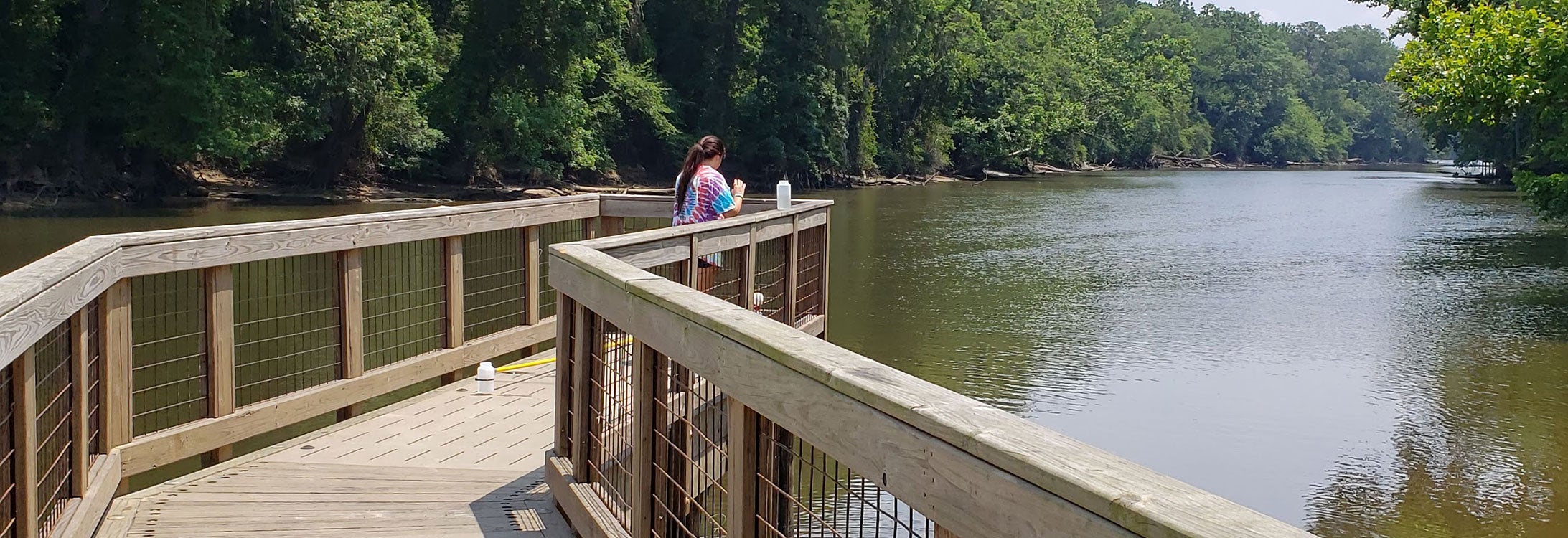Resources
Connect with the ECU Water Resources Center
All ECU faculty, students, and staff are welcome to join our Microsoft Teams group regardless of whether or not you are an affiliate. This is a great way to learn about what is happening in the Center, get access to news, and join working groups pursuing a variety of different activities. In Teams, use this code to request access: shvq08r
Anyone at ECU (or beyond!) who would like to connect or affiliate with the Water Resources Center should use this form.
Contact us at: water@ecu.edu
Students with an interest in water and the environment should contact us about Pirates on Water – a student-based organization supporting community, research activities, career and networking opportunities, conferences, and more!
Want to learn more about water?
Check out these documents to find courses at ECU related to water: Undergraduate Water Courses, Graduate Water Courses
ECU offers several relevant Graduate Certificate Programs:
- Hydrogeology and Environmental Geology
- Geographic Information Science
- Development and Environmental Planning
If you would like to learn more about water issues and science take a look at this list of current and archived online seminars or view our events calendar to see upcoming talks and other activities.
Interested in research?
The Center is looking to build opportunities for students and faculty interested in water-related research. Contact us if you would like to talk about a project idea that you think we can help with (info@ecuwater.org). All affiliates are welcome to utilize the various resources and infrastructure we working to develop at ECU.
Research Infrastructure
Analytical equipment:
- Flow injection analysis – Lachat QuickChem 8500
- Stable isotope analysis – Los Gatos Research LWIA-45-ep
- UV-Vis spectrophotometer – HACH DR 6000 (single sample)
- Fluorometer – Albillia GGUN-FL (flow-through capabilities and field deployable)
- Chemical and biological oxygen demand – Hanna Instruments (various sensors)
Multiparameter water quality probes (various handheld meters and levels of capability)
- YSI ProDSS: 1 unit (GIS, depth to 20 meters, optical DO, pH/ORP, turbidity, temperature/conductivity, algae – chlorophyll a/phycocyanin)
- YSI ProPlus: 3 units (various sensors available)
- YSI 556: 2 units (ORP, DO, pH/ORP, temperature/conductivity)
Multiparameter water quality sondes
- YSI 6920: 4 units (various sensors available)All Weather Autosampler: HACH Sigma 900 Max: 3 units
Soils and Sediments Hydraulic Characterization Lab
- constant and falling head permeameter (KSat, Meter Group)
- unsaturated hydraulic conductivity and soil water characteristic curve (Hyprop, Meter Group)
- pressure plate apparatus w/1,3,5, and 15 bar ceramic plates (up to 48 samples) (Extractor 1500F2, Soil Moisture Inc.)
- portable field/lab spectral induced polarization (Ontash and Ermac)
Field Hydrology and GeophysicsFlow meters:
- SonTek Hydrosurveyor M9 ADCP
- SonTek IQ+ ADCP
- Global Water FP111 (digital water velocity meter)
Borehole tools:
- borehole camera (Laval)
- optical televiewer (Mt.Sopris)
- 3-arm caliper probe (Mt.Sopris)
- heat pulse flow meter (Mr.Sopris)
Geophysics:
- capacitive resistivity (Ohm Mapper)
- frequency-domain EM (GSSI Profiler EMP-400)
- electrical resistivity imaging system (IRIS Syscal Pro Switch 72)
- multi-channel ground penetrating radar (100-1000MHz SPIDAR) (Sensors and Software)
- transient EM WalkTEM (ABEM)
Other:
- numerous pressure transducers (Hobo, Solinst)
- RTK GPS (EMLID Reach RS+ x2)
- PR2/6 water content probe (Dynamax)
- geoprobe
Computation and ModelingFaculty Leader: Stephen MoyseyThe WRC maintains a Windows10 workstation (WRCMAX) to support simulations and data analyses that are too big for a laptop, but don’t require a cluster to run. Details on this system and software available on it are listed below:
- WRCMAX configuration: 2x Xeon Gold 5218 processors (32 cores), 192GB RAM, Nvidia Quadro RTX5000 (16GB), 5TB storage
- COMSOL Multiphysics (Modules: Chemical Reaction Engineering, Optimization, Subsurface Flow, Porous Media Flow)
- COMSOL Server (used for creating web-based models for courses)
- GMS (Groundwater Modeling System)
- Hydrus 3D
- RES2DINV, RES3DINV
- Aarhus Workbench
- ArcGIS Pro
- EKKO Project (GPR)
West Research Campus Field Site
The long-term fertilization and mowing experiment at the West Research Campus was established by Carol Goodwillie in 2004 and has collected annual data on vegetation species variability ever since. The site contains 32 plots representing different combinations of nutrient treatment and natural versus mowed conditions. In 2016 research at the site was extended to investigate microbial communities and carbon cycling. A hydrologic gradient was observed as an important control on the site and thus in 2019/2020 a hydrologic monitoring network was established, which includes:
- 5 shallow wells with data loggers for continuous monitoring of groundwater conditions
- 5 soil monitoring stations co-located with the wells, each containing 3 water content, temperature, conductivity probes (5, 15, and 30cm depth) and two soil matric potential (pressure) probes (10cm and 20cm depth) (Hydros21 and Hydros12 with ZL6 cellular cloud-based data loggers)
- a weather station (Atmos41 Meter Group)
- multiple locations with access tubes for the PR2/6 water content probe (measures 6 depths: 10/20/30/40/60 and 100cm)
Environmental Sensing and Data Network (ESDN)
The ESDN is being developed as a cloud-based infrastructure for teaching and research in areas adjacent to the ECU campus. The initial setup of the network is focused on monitoring of stream flow in Greens Mill Run and Town Creek, which are urban streams important for storm water management and flooding. This system integrates environmental sensors with communications hardware and backend data storage and visualization tools in a testbed that will both support research and teaching in environmental, network design, and computer science courses. Deployment is in progress during 2020.
Looking for water data in Eastern North Carolina?
Check out some of these online resources: Water Resources (Google Sheet)
